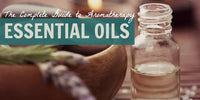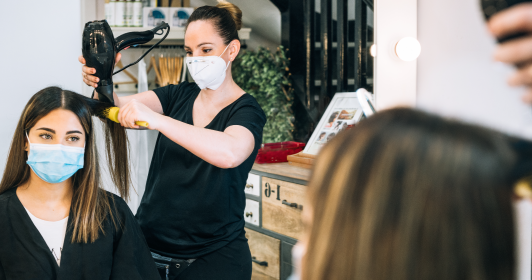
What Are Essential Oils? The Complete Aromatherapy Guide
, by Hi-Health, 3 min reading time

, by Hi-Health, 3 min reading time

Stop and smell the roses. Notice anything? As you gently breathe in their sweet perfume, you’re engaging your senses. For a moment, you’re at peace as the fragrance washes over you. Memories of romantic gestures or celebrations may resurface and give you pause as different emotions set in. The feelings provoked by the aromatic compounds in a rose are powerful. A rose is just one of many flora, spices and seeds used to create essential oils that can be used in a number of ways to enhance your mood.
For nearly 6,000 years, cultures have embraced the healing benefits of essential oils. The ancient Greeks, Romans, Indians, Chinese and Egyptians have used them in perfumes, cosmetics and for spiritual and medicinal purposes. Essential oils such as Frankincense and Myrrh were commonly used as anti-inflammatory agents to help heal wounds. Most notably and more recently, French Chemist René-Maurice Gattefossé used Lavender oil to soothe a burn on his hand caused by an accident in his laboratory. Afterwards, he started to study the compounds in essential oils and how they were used to aid wounded soldiers in World War I. In 1928, Gattefossé founded the science of aromatherapy. By 1950, health care providers, beauticians and massage therapists began including aromatherapy in their practice. By 1980, aromatherapy became more popular and widely adapted in the United States. Today, many candles, lotions and beauty products are marketed for aromatherapy benefits. However, many of those products contain synthetic perfumes that do not have the same properties as pure essential oils.
The first thing many people notice when trying pure essential oils is their fragrance. After all, smell is the most sensitive of the five senses. Studies suggest 75% of emotional responses are provoked by scent. But pure essential oils can provide more than just an alluring aroma. When diffused, they have the power to inspire a mind and body connection. They can awaken your senses and encourage you to fully experience each moment. For example, when certain citrus and mint oils are combined, they can turn an ordinary workday into a productive, thought-provoking environment. Similarly, a few drops of lavender added to a bath can turn a cleansing soak into a soothing spa. For thousands of years, essential oils have been used for therapeutic, spiritual and hygienic purposes. They can have a remarkable effect on your mood and encourage peace of mind. Their distinctive fragrance is only the beginning.
From skin care to house cleaning, beauty and more, there are hundreds of ways to use essential oils every day. Here's 5 amazing ways to get started:


![PRōZE Review [2020 Update]](http://hihealth.com/cdn/shop/articles/cbd_insider_article_graphic_featured_image-11.jpg?v=1591495027)